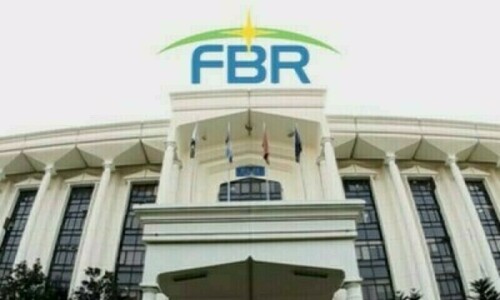ISLAMABAD: Adviser to Prime Minister on Finance, Revenue and Economic Affairs, Dr Hafeez Sheikh said on Friday that the current negotiations with International Monetary Fund (IMF) were moving ahead in a positive way to reach a programme that provides a platform for macroeconomic development in the country.
Speaking at an investment conference, Shaikh said the agreement with IMF will send a positive signal to other international financial institutions as well as countries regarding Pakistan’s commitment to fiscal discipline.
While referring to the budget 2019-20, the adviser said it would contain steps to address gaps in current account and fiscal deficits for attaining sustainable economic growth.
He claimed that the government’s measures have resulted in reduction in imports and increase in exports and remittances. Steps have also been taken to decrease expenditures while efforts are underway to increase the revenue, he said.
On Friday, IMF Mission Chief Ernesto Rigo visited the Planning and Development (P&D) Division and discussed with top officials Public Sector Development Programme, China-Pakistan Economic Corridor (CPEC) and other aspects of planning, including macroeconomic policies.
Secretary P&D Zafar Hasan gave a comprehensive overview of the planning process and CPEC. The two sides also exchanged strategy on growth targets as well as policy adjustments through both external and internal balance.
The role of Pakistan Bureau of Statistics was also discussed during the meeting.
In his address during the conference, Shaikh warned that efforts to improve fiscal management are doomed to fail if public sector enterprises (PSEs) “continue to haemorrhage” the economy. The public sector corporations continue to dominate key areas even though they do not perform and bleed about Rs200 billion a year, he pointed out.
The power sector alone causes about Rs3-Rs4bn in losses to the national exchequer every year and has accumulated a circular debt of Rs1,600bn, he estimated.
Shaikh recalled that when he was minister for investment and privatisation, he had privatised 34 companies in different sectors, including telecom and banking between 2003 and 2006. That approach may be “the way forward”, he emphasised.
The adviser said the government policies have so far led to an increase in exports and remittances along with a decrease in imports. Steps to increase revenue are also being taken, he added.
Speaking at the conference, Adviser to Prime Minister on Commerce, Textiles, Investment and Industries Abdul Razak Dawood said the priority of the government was to focus on export-led growth aimed to achieve sustainable economic growth.
“We are committed to decreasing the trade deficit through industrial and exports’ growth. Our imports are continuously decreasing for last four months which indicated that the country will not be facing any trade deficits in coming years,” he added.
Published in Dawn, May 4th, 2019














































